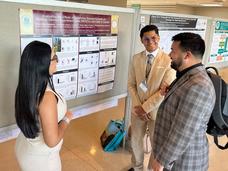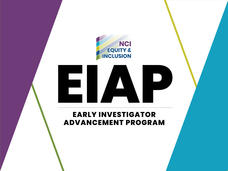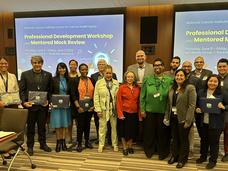CRCHD Dialogue on Disparities
Find the latest updates, spotlights, and news from CRCHD.
-
AcCELerate: A Conversation with Dr. Marcia Cruz-Correa
In this new blog series—“AcCELerate: Conversations with Cancer Equity Leaders”—CEL members provide insights on their careers and their areas of expertise, as well as their perspective on how to advance cancer health equity. In the first installment of the series, we heard from CEL member Marcia Cruz-Correa, M.D., Ph.D., a professor of medicine and biochemistry at the University of Puerto Rico (UPR) Medical Sciences Campus.
-
NCI Welcomes Seventh Cohort of iCURE Scholars
On October 4, the Intramural Continuing Umbrella of Research Experiences (iCURE) program hosted its annual welcome ceremony to announce the program’s seventh cohort. The cohort comprises ten iCURE scholars who are conducting research at the NIH campus in Bethesda, the NCI Frederick campus, and NCI Shady Grove in Rockville.
-
Students and Investigators Build Skills at Workshop in Puerto Rico: Forging Cancer Leaders and Researchers
In August, the NCI Center to Reduce Cancer Health Disparities (CRCHD) held the Puerto Rico Professional Development Workshop for more than 140 scholars, early stage investigators, and new investigators from universities and other institutions around Puerto Rico.
-
EIAP Scholar Grant Successes—October 2024
The Early Investigator Advancement Program announces Scholars who have attained an R01 or R-type equivalent award.
-
2024 Professional Development Workshop Focuses on Collaboration
On June 6–7, Continuing Umbrella of Research Experiences (CURE), Intramural CURE (iCURE), and Early Investigator Advancement Program (EIAP) scholars; some NIH Faculty Institutional Recruitment for Sustainable Transformation (FIRST) program faculty; and NCI staff gathered for the 2024 Professional Development Workshop & Mentored Mock Review. The workshop aimed to equip attendees with practical techniques to move forward in their careers.





